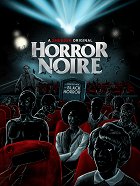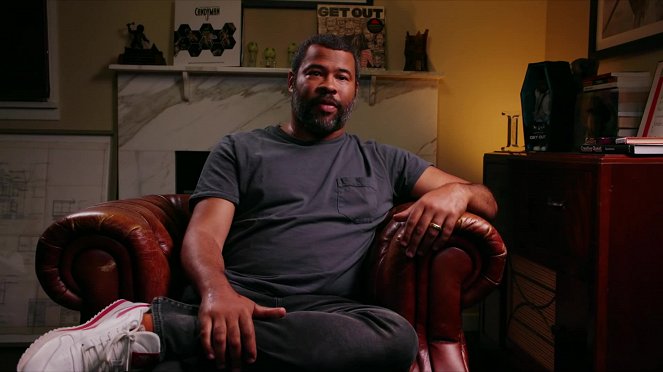Regie:
Xavier BurginActeurs:
Jordan Peele, Keith David, Rachel True, Tony Todd, Miguel A. Núńez Jr., Loretta Devine, Paula Jai Parker, Ken Foree, Kelly Jo Minter, Richard Lawson (meer)Samenvattingen(1)
“We’ve always loved horror, it’s just that horror hasn’t always loved us”. Ja, we kennen allemaal het her- en herkauwde horrorcliché van de token black guy, de zwarte vriend die als eerste sneuvelt. En als we nu eens gaan kijken waar dat cliché vandaan komt? Na Horror Noire kijk je met een heel andere sociologische bril naar je favoriete horrorfilms! Het vertrekpunt, de Bron van alle Kwaad, is The Birth of a Nation van D.W. Griffith – dat, tussen haakjes, zorgde voor de wedergeboorte van de Ku Klux Klan – helemaal tot aan Get Out, Xavier Burgin kamt in deze documentaire de hele genrefilmgeschiedenis uit op zoek naar het lot van de Afro-Amerikaan: niet, onder- of slecht vertegenwoordigd. Tot, in 1968, George Romero het ondenkbare doet: hij cast een zwarte man als hoofdrolspeler in Night of the Living Dead. Ja, voor heel wat ridders van de Politieke Correctheid zou dit een oorlog zijn die al jaren gewonnen is: Obama is toch president van de Verenigde Staten geworden en Beyoncé is één van de rijkste supersterren van de planeet. Yay. Maar de strijd is nog lang niet afgelopen, zolang Black Lives Matter nodig is en tragedies als in Charlottesville plaatsvinden. Een fascinerende, leerrijke en broodnodige documentaire in deze donkere tijden waarin racisme terug is van nooit weggeweest… (Brussels International Fantastic Film Festival)
(meer)Recensie (1)
The Horror Noire: A History of Black Horror documentary deals with the portrayal of the African American community in the genre of horror movies, from the beginnings of cinema to modern times. Among the talking heads, there are cult actors and actresses, directors, screenwriters and academics, who in free-form interviews recount their various impressions from watching and making movies. It is undeniable that in the early twentieth century, the filmmakers' approach to black people was downright racist, starting with D.W. Griffith’s infamous movie, The Birth of a Nation. Gradually, however, the industry began to tone-down that treatment of black people to eventually give the black community room for self-assertion, especially with the advent of the blaxploitation genre in the 1970s, the revival of independent movies in the 1990s, and Jordan Peele’s current movie Get Out, which is presented as almost a movie-bible for the black community. However, it did give me the impression that African Americans will never be satisfied with how they are portrayed on the screen, even under the direction of a black filmmaker. In short, there will always be room for improvement. It seems that people can find racism in any movie if they want to - and I reached this conclusion from the assertion here that the 1933 King Kong movie is a strikingly symbolic representation of the fear white people have of any character with dark skin. Yeah, right. [Sitges 2019]
()

